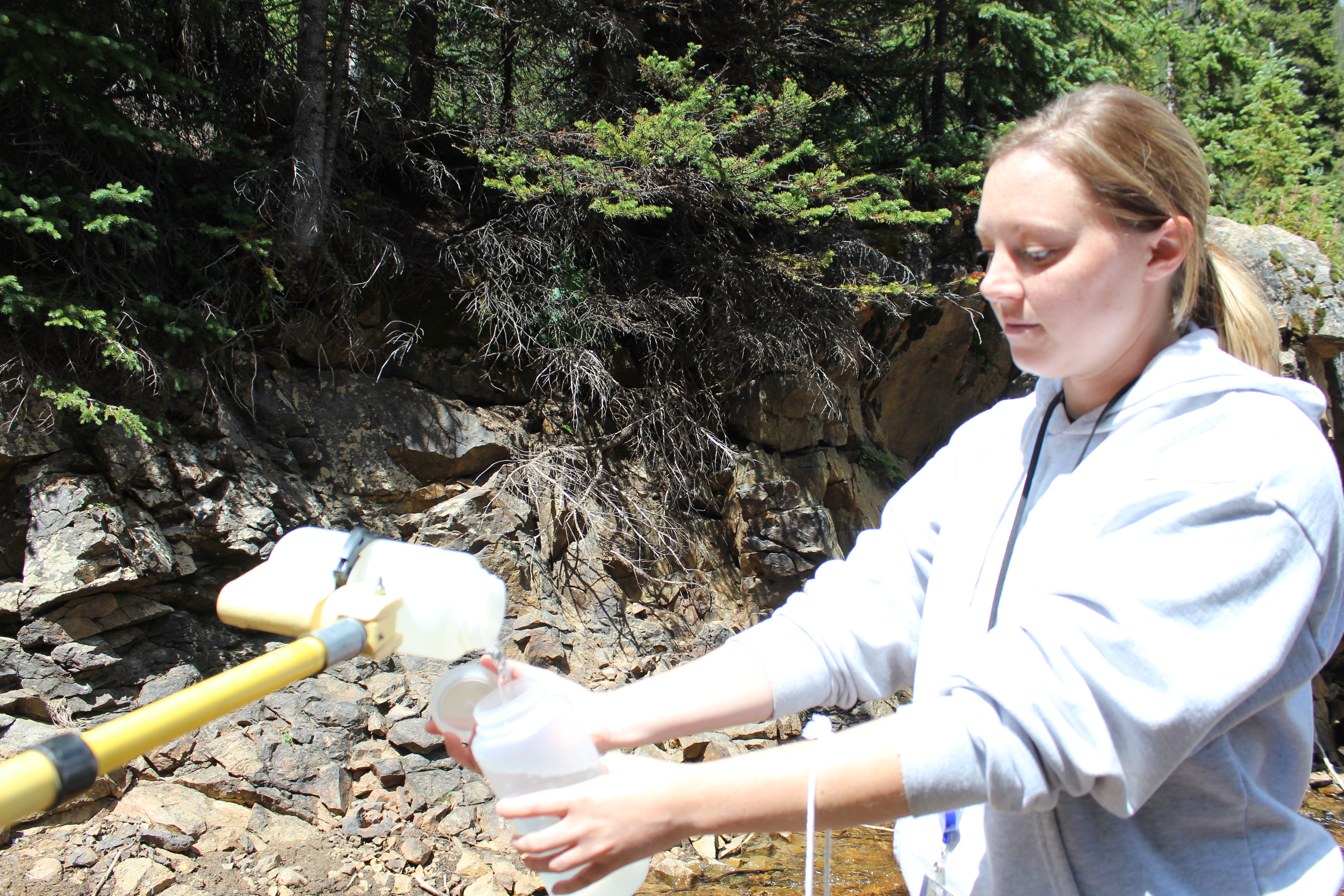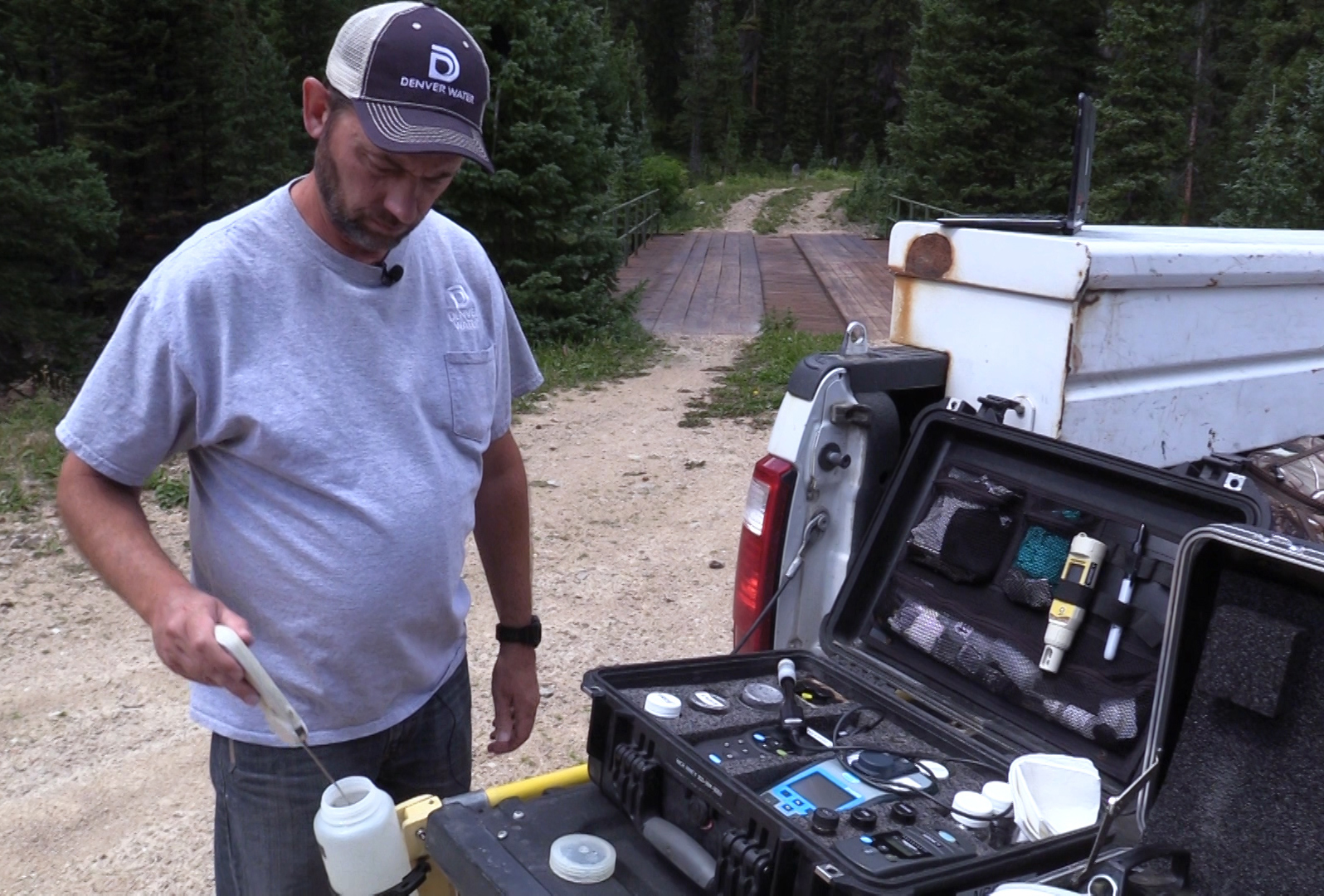
Testing the waters in Grand County
Driving through the wilderness in Grand County, Colorado, water quality technicians Ashley Luscan and Nick Riney are on a journey to test water from three remote mountain streams.
“We’re in the mountains 12 months a year visiting streams, rivers and reservoirs,” Luscan said. “It’s important to collect samples at these locations in our watershed because this is where our drinking water comes from.”
Luscan and Riney are part of the water quality team at Denver Water that travels to eight counties and collects samples from 77 watershed locations.
The goal of their trip in late-August: collect water samples from Bobtail, McQueary and Steelman creeks southwest of Winter Park, Colorado, near Jones Pass.
Sampling is an important part of the water quality process and provides first-hand information about the characteristics of water in Denver Water’s collection system.
“We’re looking for anything unusual in the water,” Riney said. “Any signs of pollution, illegal discharges or abnormal readings.”
The first step involves capturing samples of water from the same spot so the data is consistent over time. Technicians also look for a steady flow of water and use different types of bottles for each test.
“We test each of the 77 watershed locations at least twice a year,” Riney said. “In the field, we test the water for temperature, pH, turbidity, conductivity and dissolved oxygen.”
Turbidity measures the amount of sediment in the water; conductivity helps determine the amount of salt; pH measures acidity; and dissolved oxygen tells how much oxygen is in the water — an important factor for aquatic life.
Tests that can’t be conducted in the field are performed at Denver Water’s laboratory next to Marston Treatment Plant in southwest Denver. Those tests include measuring levels of fluoride, chloride, nitrates, E. coli, nutrients and dissolved metals.
The results are used to ensure safe drinking water, determine steps needed in the water treatment process and to monitor health of the watershed.
“If we find something unusual, our water quality team will investigate further to determine if it’s a temporary or long-term change,” Riney said.
Water sampling is part of Denver Water’s annual program of exhaustive tests aimed at making sure drinking water is safe and meets or exceeds requirements set by the Environmental Protection Agency and Colorado Department of Public Health and Environment.
Denver Water’s 2018 Water Quality Report includes data from 35,000 samples and nearly 70,000 tests conducted in 2017.
Technicians also collect samples from large pipelines and water mains in the city that deliver water directly to customer homes and businesses.
“We put on a lot of miles, but it’s important to test our water from source to tap,” Riney said. “We want to make sure we’re always delivering the best water and that starts up in the mountains.”


